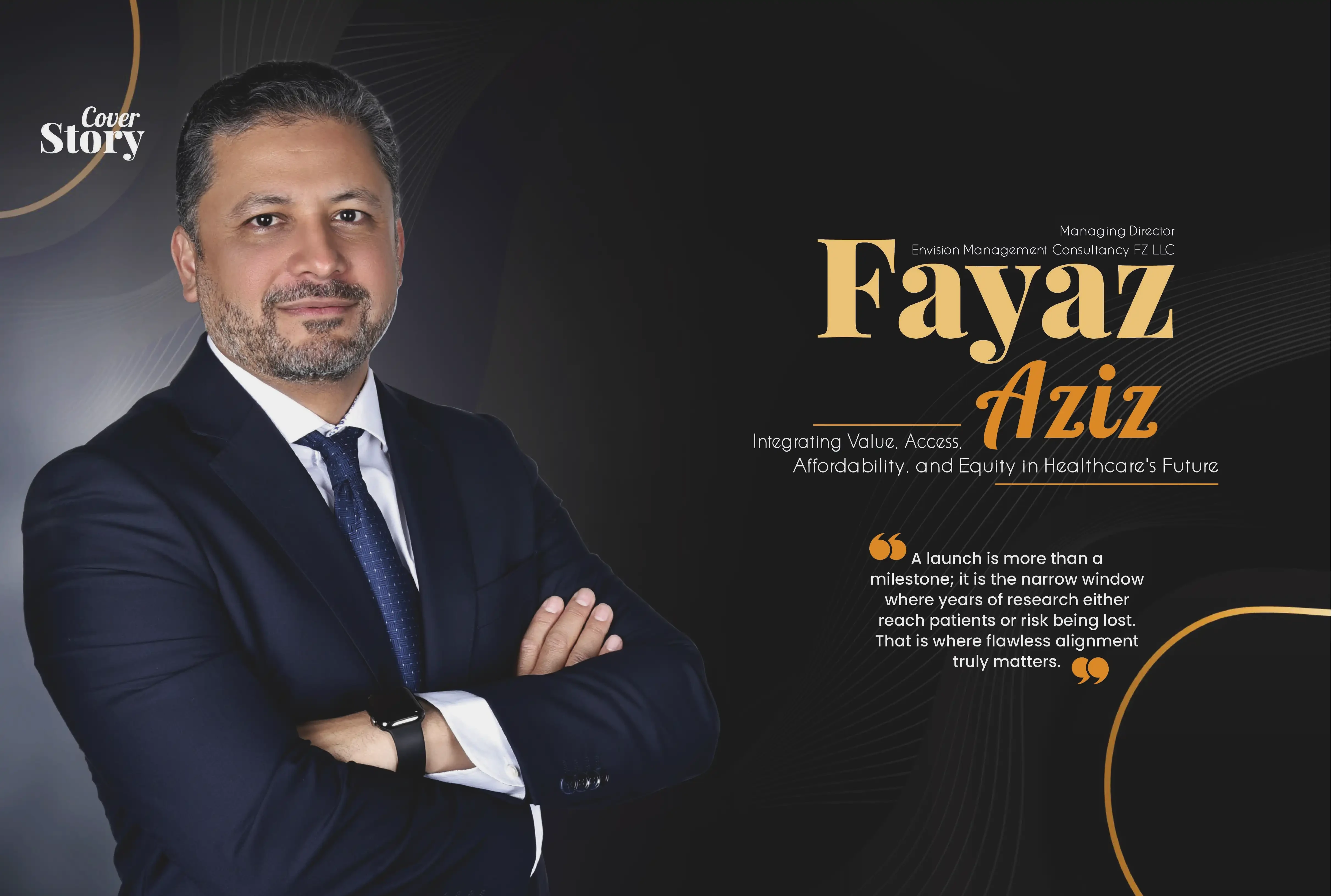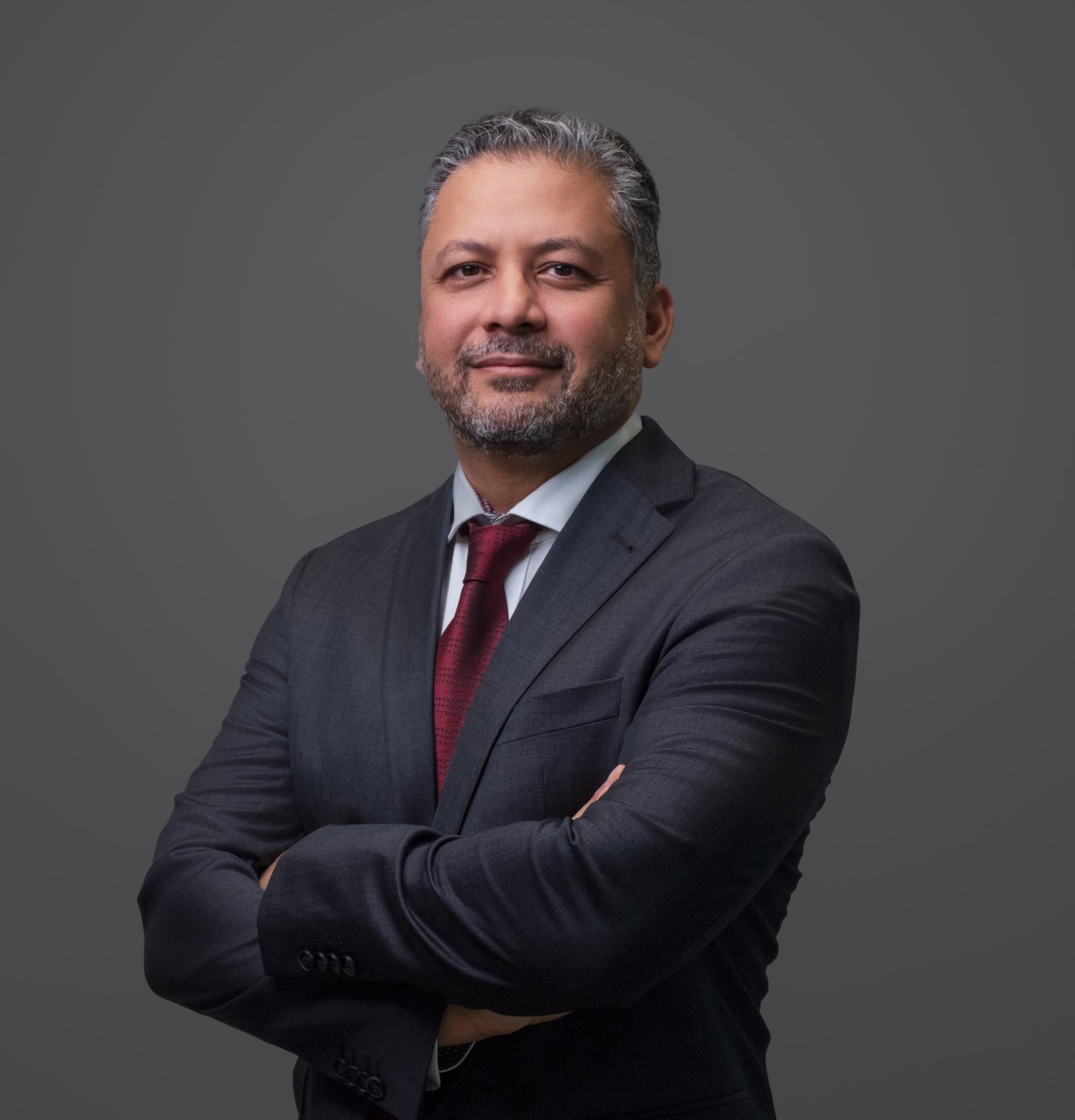
Innovation in healthcare often feels like a race against time. Scientific breakthroughs, digital therapies, and advanced technologies arrive with extraordinary promise, yet the systems meant to deliver them to patients struggle to keep pace. New medicines can be developed faster than reimbursement pathways allow, digital tools can appear before regulators are ready to evaluate them, and health equity often lags behind innovation. The result is a widening gap between what science can achieve and what patients can access.
This is where Fayaz Aziz and Envision Management Consultancy step in. Acting as trusted partners to
biopharmaceutical, medical device companies and healthcare stakeholders, they
transform possibility into practice. By blending data with empathy, evidence
with strategy, and insight with action, Fayaz and his team ensure that new
solutions do not remain confined to laboratories or policy papers.
Fayaz Aziz has over two decades of leadership
experience across, Health Economics and Value Evidence, Market Access and
Medical Excellence in multiple geographies. His journey reflects a unique blend
of global perspective, deep local insight, strategic expertise, and a strong
commitment to accelerating access for patients.”
A Global Lens on Leadership
Over the years, Fayaz has come to understand that
leadership in healthcare is as much about listening and adapting as it is about
directing. His experience across Europe, the Middle East, Asia Pacific, and
Latin America has taught him that while science may be universal, the routes to
patient access vary widely. Policy frameworks, cultural nuances, and available
resources shape these pathways. This global perspective enables him to lead
with both strategic foresight and empathy, ensuring that Envision delivers
solutions that are scientifically robust while also being deeply relevant to
local realities.
The High Stakes of Launch
For Fayaz, the launch stage of a product is the most
challenging phase. This is the critical moment when years of research,
regulatory processes, and stakeholder engagement converge into a narrow window
of opportunity. In his view, success at this stage requires flawless alignment
and execution between regulatory, market access, medical affairs, and
commercial teams.
In emerging markets, this complexity intensifies
because infrastructure and policy frameworks are still evolving. Launching a
product within the region calls for agility, close stakeholder collaboration,
and rigorous data-driven planning to ensure timely patient access.
Creating Spaces Where Teams Thrive
Adaptability has been a constant in Fayaz’s leadership
approach. He recognizes that in some contexts, leadership demands structure and
process, while in others, it thrives on creativity and decentralised
decision-making. To remain effective, he always returns to three guiding
principles: listen first, establish shared goals, and empower teams to take
ownership of solutions. By respecting cultural nuances while upholding global
standards, he creates environments where diverse teams can thrive and deliver
meaningful results.

The Power of Diverse Voices in
Healthcare
Fayaz often highlights that diverse insights are the seeds of tomorrow’s breakthroughs. He recalls a project with a biopharmaceutical client where the challenge extended beyond regulatory understanding. It was essential to grasp how insurers, third-party administrators, and regulators interacted in practice. By combining market mapping with real-world case studies and role plays, Envision gave the client’s team the chance to see the healthcare system from multiple perspectives. This exercise provided them with a practical playbook for payer engagement. The result was more than understanding; it was confidence and actionable tools that improved access discussions and supported timely patient access to therapies.
From Policy to Patients: Accelerating Access Sustainably
Accelerating equitable access to treatment requires translating strategy into action. Fayaz’s work focuses on facilitating systems building that deliver innovation to patients faster, while ensuring long-term sustainability for payers and health systems. In high-income countries, this means optimizing pathways for new technologies and strengthening HTA capacity; in middle-income regions, it involves tackling bottlenecks in availability, affordability, and workforce capability. Through data-driven policy design and cross-sector collaboration, Envision helps bridge the gap between innovation and implementation, ensuring patients benefit sooner and systems endure longer.
An Integrated Approach to Lasting Change
What makes Envision stand apart, according to Fayaz,
is its integrated approach. Many consultancies stop at delivering analytics or
strategies. Envision, however, ensures that insights feed into strategies, and
strategies are supported by capability-building initiatives. Fayaz emphasizes
that healthcare change is not about reports sitting on a shelf. At Envision,
the team co-creates roadmaps with clients, trains local teams, and supports
implementation. This ensures that recommendations are not only well designed
but also executed in a way that creates measurable improvements in healthcare
systems.
Evidence as a Catalyst for Decisions
In emerging markets, decision-making can often be
influenced by budgetary limitations or shifting political priorities. Fayaz
stresses that presenting clear, credible evidence transforms these debates from
opinion-based arguments into focused value driven collaborations. Whether
clinical data, economic models, or real-world evidence, the use of credible
insights helps stakeholders balance financial responsibility with patient needs,
leading to stronger, more patient-centred decisions.
Building Models that Matter
For Fayaz, a strong health economic model must be
scientifically rigorous, relevant to the local context, and easy for diverse
stakeholders to interpret. He points out that robust methodologies must be
paired with local epidemiological and cost data. The outputs also need to be
presented in ways that resonate with both policymakers, payers and clinicians. Envision
often employs scenario analyses to illustrate trade-offs and long-term value,
thereby bridging the technical detail with actionable insights for
decision-makers.
Opportunities on the Horizon
Looking toward 2030, Fayaz sees three promising opportunities in healthcare innovation. The first is personalised digital therapeutics that integrate seamlessly into daily life. The second is artificial intelligence models that predict health needs and allow for earlier interventions. The third is the development of financing mechanisms that align the incentives of payers, providers, and patients. He stresses that the greatest opportunity lies not in the technology itself but in integrating these advances into health systems in ways that accelerate access, deliver value, and ensure long-term sustainability.
Turning Digital Tools into Real-World
Care
Digital transformation, according to Fayaz, is not
about chasing every new trend but about focusing on solutions that truly
improve outcomes. Envision helps clients assess the real value of digital
health tools, understand regulatory requirements, and design reimbursement
strategies. The aim is to ensure that digital solutions are embedded in care
pathways so they deliver meaningful benefits in practice.
Seeds of Change for Generations to
Come
As Fayaz reflects on the long-term impact he wishes to
create, he is clear and intentional about his vision for the future. He does
not simply measure success in terms of projects completed or clients served but
in the tangible difference felt by patients and communities across the globe.
His hope is that in a decade, patients in the markets that Envision supports
will enjoy earlier, and more sustainable access to the care they need. To him,
access is not a privilege reserved for a few but a fundamental right that every
healthcare system must strive to uphold.
Whether this access takes the form of a lifesaving
medicine delivered in time to change the course of a disease, a much-needed
mental health service that provides dignity and hope, or a digital therapeutic
that brings innovation directly into a patient’s home, his vision is expansive
and inclusive. He imagines a future where no one’s access to treatment is
defined by geography or income. Instead, he envisions health systems that
accelerate and sustain access guided by evidence, inspired by innovation, and
built to serve patients.
Fayaz’s aspiration is for Envision to become known not
only as a consultancy but as a trusted bridge that connects global advances in
science, technology, and healthcare policy with the unique realities of local
systems. He envisions the organization as a platform where diverse stakeholders
can come together, guided by evidence and empathy, to co-create solutions that
endure. In this role, Envision would be recognized as more than an advisor: it
would be a catalyst for accelerating patient access in a sustainable way, advancing innovation, and shaping lasting
health system transformation.
For Fayaz, true legacy is never about titles or
accolades. It lies in shaping health systems in ways that endure beyond any
single individual or initiative. He hopes to leave behind an organization and a
philosophy that continue to improve lives long after his tenure. The mark of
success, in his view, will be the patient who gains timely access to a
treatment, the family who experiences improved quality of life, and the
community that thrives because healthcare was made more accessible.
In the end, he believes that leadership in healthcare
is about stewardship and service. It is about using expertise, influence, and
vision to create lasting change. Fayaz’s legacy, as he defines it, will not
only be the building of Envision as an organization of excellence but also the
nurturing of systems that are compassionate, resilient, and equipped to meet
the evolving needs of patients around the world. By aligning innovation with
sustainable access to care and science with purpose, he aims to ensure that
every action taken today builds a foundation for the health systems of
tomorrow.